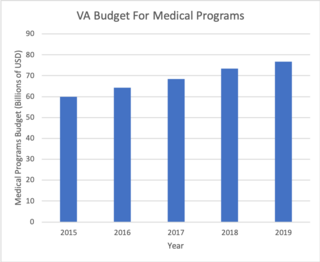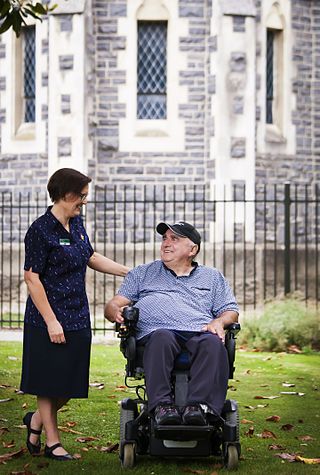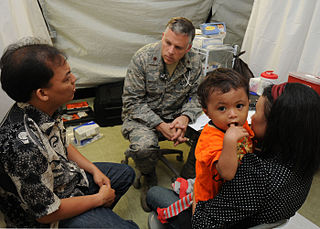Palliative care is an interdisciplinary medical caregiving approach aimed at optimizing quality of life and mitigating suffering among people with serious, complex, and often terminal illnesses. Within the published literature, many definitions of palliative care exist. The World Health Organization (WHO) describes palliative care as "an approach that improves the quality of life of patients and their families facing the problems associated with life-threatening illness, through the prevention and relief of suffering by means of early identification and impeccable assessment and treatment of pain and other problems, physical, psychosocial, and spiritual." In the past, palliative care was a disease specific approach, but today the WHO takes a broader approach, that the principles of palliative care should be applied as early as possible to any chronic and ultimately fatal illness.

Primary care is the day-to-day healthcare given by a health care provider. Typically this provider acts as the first contact and principal point of continuing care for patients within a healthcare system, and coordinates other specialist care that the patient may need. Patients commonly receive primary care from professionals such as a primary care physician, a physician assistant, or a nurse practitioner. In some localities, such a professional may be a registered nurse, a pharmacist, a clinical officer, or an Ayurvedic or other traditional medicine professional. Depending on the nature of the health condition, patients may then be referred for secondary or tertiary care.
Terminal illness or end-stage disease is a disease that cannot be cured or adequately treated and is expected to result in the death of the patient. This term is more commonly used for progressive diseases such as cancer, dementia or advanced heart disease than for injury. In popular use, it indicates a disease that will progress until death with near absolute certainty, regardless of treatment. A patient who has such an illness may be referred to as a terminal patient, terminally ill or simply as being terminal. There is no standardized life expectancy for a patient to be considered terminal, although it is generally months or less. Life expectancy for terminal patients is a rough estimate given by the physician based on previous data and does not always reflect true longevity. An illness which is lifelong but not fatal is a chronic condition.

The Veterans Health Administration (VHA) is the component of the United States Department of Veterans Affairs (VA) led by the Under Secretary of Veterans Affairs for Health that implements the healthcare program of the VA through a nationalized healthcare service in the United States, providing healthcare and healthcare-adjacent services to Veterans through the administration and operation of 146 VA Medical Centers (VAMC) with integrated outpatient clinics, 772 Community Based Outpatient Clinics (CBOC), and 134 VA Community Living Centers Programs. It is the largest division in the Department, and second largest in the entire federal government, employing over 350,000 employees. All VA hospitals, clinics and medical centers are owned by and operated by the Department of Veterans Affairs as opposed to private companies, and all of the staff employed in VA hospitals are government employees. Because of this, Veterans that qualify for VHA healthcare do not pay premiums or deductibles for their healthcare but may have to make copayments depending on what procedure they are having. VHA is distinct from the U.S. Department of Defense Military Health System of which it is not a part.

Massachusetts General Hospital is the original and largest teaching hospital of Harvard Medical School located in the West End neighborhood of Boston, Massachusetts. It is the third oldest general hospital in the United States and has a capacity of 999 beds. With Brigham and Women's Hospital, it is one of the two founding members of Mass General Brigham, the largest healthcare provider in Massachusetts. Massachusetts General Hospital houses the largest hospital-based research program in the world, the Mass General Research Institute, with an annual research budget of more than $1 billion in 2019. It is currently ranked as the #8 best hospital in the United States by U.S. News & World Report.
The term managed care or managed healthcare is used in the United States to describe a group of activities intended to reduce the cost of providing health care and providing American health insurance while improving the quality of that care. It has become the predominant system of delivering and receiving American health care since its implementation in the early 1980s, and has been largely unaffected by the Affordable Care Act of 2010.
...intended to reduce unnecessary health care costs through a variety of mechanisms, including: economic incentives for physicians and patients to select less costly forms of care; programs for reviewing the medical necessity of specific services; increased beneficiary cost sharing; controls on inpatient admissions and lengths of stay; the establishment of cost-sharing incentives for outpatient surgery; selective contracting with health care providers; and the intensive management of high-cost health care cases. The programs may be provided in a variety of settings, such as Health Maintenance Organizations and Preferred Provider Organizations.
Behavioral medicine is concerned with the integration of knowledge in the biological, behavioral, psychological, and social sciences relevant to health and illness. These sciences include epidemiology, anthropology, sociology, psychology, physiology, pharmacology, nutrition, neuroanatomy, endocrinology, and immunology. The term is often used interchangeably, but incorrectly, with health psychology. The practice of behavioral medicine encompasses health psychology, but also includes applied psychophysiological therapies such as biofeedback, hypnosis, and bio-behavioral therapy of physical disorders, aspects of occupational therapy, rehabilitation medicine, and physiatry, as well as preventive medicine. In contrast, health psychology represents a stronger emphasis specifically on psychology's role in both behavioral medicine and behavioral health.
Health information exchange (HIE) is the mobilization of health care information electronically across organizations within a region, community or hospital system. Participants in data exchange are called in the aggregate Health Information Networks (HIN). In practice, the term HIE may also refer to the health information organization (HIO) that facilitates the exchange.
Compassion fatigue is a condition characterized by emotional and physical exhaustion leading to a diminished ability to empathize or feel compassion for others, often described as the negative cost of caring. It is sometimes referred to as secondary traumatic stress (STS). According to the Professional Quality of Life Scale, burnout and STS are interwoven elements of compassion fatigue.
Patient safety is a discipline that emphasizes safety in health care through the prevention, reduction, reporting and analysis of error and other types of unnecessary harm that often lead to adverse patient events. The frequency and magnitude of avoidable adverse events, often known as patient safety incidents, experienced by patients was not well known until the 1990s, when multiple countries reported significant numbers of patients harmed and killed by medical errors. Recognizing that healthcare errors impact 1 in every 10 patients around the world, the World Health Organization (WHO) calls patient safety an endemic concern. Indeed, patient safety has emerged as a distinct healthcare discipline supported by an immature yet developing scientific framework. There is a significant transdisciplinary body of theoretical and research literature that informs the science of patient safety with mobile health apps being a growing area of research.
A health professional, healthcare professional, or healthcare worker is a provider of health care treatment and advice based on formal training and experience. The field includes those who work as a nurse, physician, physician assistant, registered dietitian, veterinarian, veterinary technician, optometrist, pharmacist, pharmacy technician, medical assistant, physical therapist, occupational therapist, dentist, midwife, psychologist, or who perform services in allied health professions. Experts in public health and community health are also health professionals.
Health advocacy or health activism encompasses direct service to the individual or family as well as activities that promote health and access to health care in communities and the larger public. Advocates support and promote the rights of the patient in the health care arena, help build capacity to improve community health and enhance health policy initiatives focused on available, safe and quality care. Health advocates are best suited to address the challenge of patient-centered care in our complex healthcare system. The Institute of Medicine (IOM) defines patient-centered care as: Health care that establishes a partnership among practitioners, patients, and their families to ensure that decisions respect patients’ wants, needs, and preferences and that patients have the education and support they need to make decisions and participate in their own care. Patient-centered care is also one of the overreaching goals of health advocacy, in addition to safer medical systems, and greater patient involvement in healthcare delivery and design.

A caregiver or carer is a paid or unpaid member of a person's social network who helps them with activities of daily living. Since they have no specific professional training, they are often described as informal caregivers. Caregivers most commonly assist with impairments related to old age, disability, a disease, or a mental disorder.
Caregiver syndrome or caregiver stress is a condition that strongly manifests exhaustion, anger, rage, or guilt resulting from unrelieved caring for a chronically ill patient. This condition is not listed in the United States' Diagnostic and Statistical Manual of Mental Disorders, although the term is often used by many healthcare professionals in that country. The equivalent used in many other countries, the ICD-11, does include the condition.
Stephen Garrard Post has served on the Board of the John Templeton Foundation (2008-2014), which focuses on virtue and public life. He is a researcher, opinion leader, medical school professor, and best-selling author who has taught at the University of Chicago Medical School, Fordham University-Marymount, Case Western Reserve University School of Medicine (1988-2008) and Stony Brook University School of Medicine (2008-). He is widely known for his research on the ways in which giving can enhance the health and happiness of the giver, how empathy and compassionate care contribute to patient outcomes, ethical issues in caring for people with dementia, medical professionalism and the virtues, and positive psychology in relation to health and well-being. Post is an elected member of the College of Physicians of Philadelphia, the New York Academy of Medicine, and the Royal Society of Medicine, London. He was selected nationally as the Public Member of the United States Medical Licensing Examination (USMLE) Composite Committee (2000-2005), and was reappointed for outstanding contributions.
An ambulatist is a licensed health care provider who specializes in the prevention, management, and care coordination of ambulatory patients with chronic diseases by using lifestyle medicine and drug therapy.

Cultural competence in healthcare refers to the ability for healthcare professionals to demonstrate cultural competence toward patients with diverse values, beliefs, and feelings. This process includes consideration of the individual social, cultural, and psychological needs of patients for effective cross-cultural communication with their health care providers. The goal of cultural competence in health care is to reduce health disparities and to provide optimal care to patients regardless of their race, gender, ethnic background, native languages spoken, and religious or cultural beliefs. Cultural competency training is important in health care fields where human interaction is common, including medicine, nursing, allied health, mental health, social work, pharmacy, oral health, and public health fields.

OpenNotes is a research initiative and international movement located at Beth Israel Deaconess Medical Center.
Rana Awdish is an American critical care physician, pulmonologist, author and medical director of the Pulmonary Hypertension Program of Henry Ford Hospital. She is best known for her critically acclaimed, bestselling book In Shock: My Journey from Death to Recovery and the Redemptive Power of Hope.

Thea L. James is an American emergency medical physician as well as an Associate Professor, Associate Chief Medical Officer, and Vice President of the Mission at the Boston Medical Center in Boston, Massachusetts.






